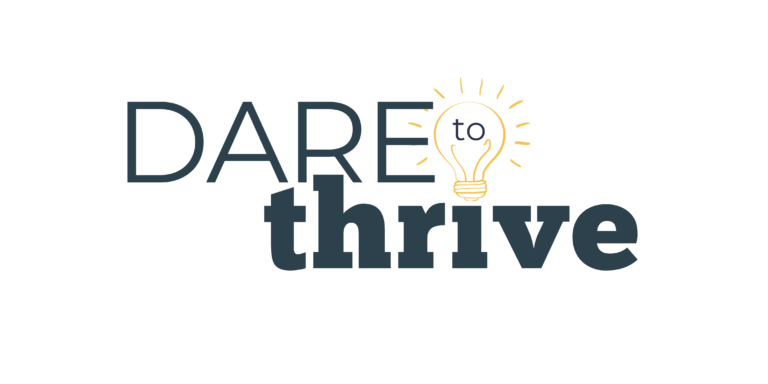Where were you when the “fat free” craze swept America? I was in high school and college as we were beginning that particular phase of American diet disasters. We were told (and it kind of made sense right?) that “fat” made you fat. And if something was “fat free” you could pretty much eat as much as you wanted. And guess what is fat free? Sugar!! Candy (at least those without chocolate) is fat free, and liberally labeled that way. So I was the girl who would buy the super sized bag of Twizzlers before a movie and down the entire package; all 640 calories and 76 grams of sugar. I grew up in the south where (very) sweet tea was just the norm; most major soft drinks were born; and dessert is a daily part of life. I was once a sugar-aholic.
I’ve since learned that sugar is not only terrible for our health but also one of the most addictive substances. Yikes. And it is in just about everything. The American Health Association currently recommends no more than six teaspoons / day for women and nine for men. Some health professionals are especially concerned about the growing epidemic and actually say no amount of added sugars is safe and that we should work to remove all added sugar from our diet. Good googagmooga! I know, some of you are questioning whether life would even be worth living (wink).
Here’s the good news, the bad news, and some tips if you decide you want to avoid major health problems in your future.
The Good News
- Living a life without sugar really isn’t torture. Honest. Now stick with me here you sugar loving people. I get it. All the sweet things sound so, well, sweet. God’s honest truth though, once I weaned myself from sugar, REAL food actually tastes amazing and naturally sweet tastes better. And a little goes a long way!
- It doesn’t have to be all or nothing. You can still “indulge” in some sweet treats just in smaller quantities – which is good for the pocketbook and the waistline.
- You can improve your health. Many of those health problems related to over indulging in sugar CAN be reversed by scaling back sugar and making healthy swaps. I’ve seen type two diabetes reversed and people come off of medications once getting to a healthy weight.
- Ditching the sugar is key in weight loss. While the fat free craze was unfounded, cutting sugar, and the calories associated, are a key factor in weight loss.
- Less sugar improves gut health. Sugars eat away at the “good” bacteria in your gut that are needed for healthy digestion (and a ton of other things).
- Healthy is fun! Living a long, healthy, active lifestyle can be way more fun than sitting bloated on the couch after binge eating your favorite sugary “treat.”
The Bad News
- Sugar is highly addictive. That whole “addiction” thing is not a scare tactic or diet fad. Sugar has been proven to be more addictive than cocaine. Which means that you’re getting a dopamine hit with every bite and that is why it is tough to stop eating sugary foods once you start, even when you are full. So for some people, eliminating / minimizing sugar can be a huge challenge; just as challenging as any other addiction.
- It’s inEVERYthing. That addiction is made even more challenging because sugar is in (and often hidden) in just about every processed food item.
- It can be a “silent” killer. Sugar may be impacting your gut health and liver and other organs in ways you don’t even realize. You might not gain weight, but metabolically your organ function is diminished until there is a medical emergency or scare.
- Higher risk of disease. Sugar can lead to weight gain (obesity is a risk factor in most major diseases), diabetes, stroke, high blood pressure, fatty liver disease, inflammation to name a few.
So what do we do?
These may sound like a lot, but most are pretty simple and making a shift in your sugar habits is one of the healthiest things you can do. So just pick one or two to start and keep adding as you feel ready!
Rubber, Met Road
- Assess – where are you now? A tool like MyFitnessPal can be used to track how much sugar you are eating each day. One to two weeks of diligent, honest tracking will give you a good snapshot of your current reality. Make sure you track everything that goes in your mouth!
- Problem or not? Based on the AHA guidelines of 6 (women) 9 (men) teaspoons (or 24 / 36 grams respectively) per day, how are you doing? Don’t feel bad if you’re in the “problem zone,” most people are.
- Choose your method. If you’re ready to bring down your sugar intake, there are two main methods; gradual or cold turkey. My preferred method was a mixI slowly started to add less and less sugar to coffee and tea. I mixed plain yogurt with flavored. I started to decrease portion sizes for sweets. I stopped buying candy and kept desserts to special occasions. For some, a cold turkey 30 day no sugar detox works best. You can always try one and if that isn’t working try the other.
- Track your progress. Sugar is sneaky! It is in ketchup, tomato sauce, cold medicine (just to name a few). So continuing to read labels and monitor what you eat will help you spot things that are tripping you up.
- Celebrate your success! Just not with sweets! As a society we’ve become so food centric that our social events and celebrations all revolve around food, especially sweets. We give kids candy for a good report card. We give them a sweet treat to “celebrate” the end of a school day. Got a promotion? Let’s get ice cream! Getting married? Let’s have cake! Even dentists are giving out lollipops (let’s think about that for a minute…). So finding creative ways to celebrate is fun and healthy.
- Revisit this often! It is SO easy to slip back into the sugar habit. A little can quickly lead to a lot (remember the addictive properties of sugar). So periodically, remind yourself to kick the habit and get back to a healthy level.
But why does it sometimes seem so much harder to say no to sugar and sugar cravings?
Sugar Triggers
There are a number of things that can trigger sugar / addictive cravings. Here are just a few.
- Hormones – ladies especially, we all know those hormones can wreak havoc on us and cravings are just one way.
- Emotions – there is a reason they call it “eating our emotions.” Every emotion (including the “happy” ones) can lead us to eat. For all of them, eating is a way we either try to ignore or stuff down our emotions OR a way to celebrate our emotions. Emotions are not a bad thing, it’s how we’re choosing to acknowledge them that is the problem.
- Memories – there are certain events, situations, or locations that will trigger memories and feelings (there go those feelings again) that will cause us to want to eat certain foods. I lived in NYC for three years. For many years after, when I visited I would “have” to have certain foods because they brought back memories for me. Your’s might be mom’s cooking, a particular restaurant, vacation spots, or certain events.
- Habit – that package of oreos you pick up every time you’re in the grocery store? That bowl of ice cream you have every night while watching tv? Some of what we do is at this point a habit we might not even really “notice.”
- Boredom – yep. We’ve probably all been there with this one.
So what the heck do we do about it???
- Clear the house! When you’re really ready to get serious, clear the house. Everything that might tempt you. THROW IT OUT. Get a friend (who will be an accountability partner NOT an accomplice) to help you if needed.
- Make a list of habits to break. Decide a strategy to replace them with a new habit. Eating ice cream while watching tv might become going for a walk or reading a book while taking a bath. Walking past the snack room to grab a treat might become taking the longer way around the office and getting in some extra steps.
- Online Grocery Shopping. Do your grocery shopping online to avoid temptations. Create a list and only buy from that list. And of course, never shop when you are hungry!
- Phone a friend. Seriously! Find that accountability partner (not your accomplice…) and ask them to talk you off the ledge.
- Pay attention to your emotions. I know this isn’t always “fun.” Sometimes emotions are pretty sucky. And they are all there for a reason to help us in some way. We all know putting them off doesn’t really help… so take some time to journal, meditate, pray, walk, think, talk out those emotions and try to get to what is really going on and what you really need / want to do with the situation.
- Make a FUN list! Often we are just plain bored and eating seems easy and fun. Then the bloating and yuckiness comes on and we ask ourselves why the heck we did that. Create a list of things you can do when you are bored (our kids called it their Bored Board). It might be a project around the house you’ve been “meaning” to get to, or a new hobby, or a challenge like reading a certain number of books. It might be spending time calling friends or loved ones or sending encouraging notes to people (we all love snail mail!). Be creative, have fun, and put it where you’ll see it! Maybe challenge yourself to do one thing a day.
- Sleep! I’ve had some clients who just had some days where they were bored and fighting temptations and they said just going to bed (this is obviously in the evening) was the best thing. They got extra sleep AND avoided temptation!
- STOP, CHALLENGE, CHOOSE. We teach this with health coaching and it’s such a great tool. Stop – as you feel the temptation. Challenge yourself – “what’s going on, what trigger has been pulled, what choices do I have and which will make me happy with myself tomorrow.” Choose – make a choice and IF you chose to allow yourself whatever it was, savor it, eat about 3 bites and move forward with your next healthy choice.
One last thing. All addictions can be extremely serious, life threatening, and impact other people in your life. If you have ANY kind of addiction that you can not get a hold of, please reach out for additional help. I know a number of resources and am always willing to connect people to them as needed. Please don’t ever hesitate or be ashamed to ask for that support.
Jen Chacon is a healthy lifestyle coach who helps busy, stressed, everyday people create a foundation of healthy habits for body, mind and spirit so they can do, and live a life they love! Together we can learn and choose to Dare to Thrive.

